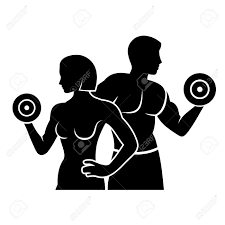As a sport dietitian, I get asked many questions about supplements. What’s the best protein powder, pre-workout energy booster, or recovery drink? Are these products all they are promoted to be? To address that question, I scoured an article by Jose Antonio PhD and colleagues in the Journal of the International Society of Sports Nutrition:
“Common questions and misconceptions about dietary supplements and the industry—What does science and the law really say?”
This summary of some key points comes with a concluding suggestion: be an informed consumer.
For trusted supplement information, your best bet is to not believe all you read on Instagram and TikTok! Rather, choose to get personalized information by meeting with a registered dietitian nutritionist (RD or RDN) who is a Certified Specialist in Sports Dietetics (CSSD). A simple Internet search “sports nutrition RD near me” can help you find a local RD CSSD. (Nutrition consultations commonly get covered by health insurance, so don’t let money be a barrier. An RD CSSD might even save you money if you are currently buying needless supplements.)
Here’s some background information about sport supplements to help you become an informed consumer.
- Supplements are a big business. In 2023, the US dietary supplement industry (includes vitamins, minerals/electrolytes, herbs, botanicals, amino acids, enzymes, etc.) was valued at more than $54 billion dollars. Amazon.com alone sold $12.6 billion in vitamins, minerals, and related supplements. In comparison, prescription medications had thirty times more sales—about $670 billion.
- Are all commercial supplements safe and effective? That is, how well regulated is the dietary supplement industry? The answer is debatable—and also confusing for the average consumer. For example, the FDA regulates Red Bull not as a supplement but as a food/ beverage. Red Bull contains caffeine; FDA regulations limit caffeine content in the food/beverage category to less than 400 mg/serving. That’s the safe upper limit per day for adults. Yet, restaurants and coffee shops do not have to declare the caffeine content of their products. Regardless, any athlete can consume an unlimited number of energy drinks or cups of coffee in a day. That’s problematic because the dose is the poison. Very high doses can lead to heart arrythmia and trips to the ER.
- Unlike pharmaceutical drugs, dietary sport supplements (recovery drinks, protein powders) do not need to be pre-approved by the FDA. The manufacturers need to ensure safety, comply with labeling laws, and include specific information on the Supplement Facts Panel. But, unlike the Nutrition Facts Panel for food, the Supplement Facts Panel does not have to include specific amounts of ingredients, such as grams of caffeine or protein. Many supplements claim to have a mysterious proprietary blend. Who knows what’s in that pre workout drink, fat burner, or metabolic booster?• A supplement is deemed safe if it is reasonably expected to be safe when used as intended. This means, adverse reactions get reported and dealt with after having caused harm. (This differs from a food additive that is reasonably expected to cause no harm and has to be proven safe prior to being listed as Generally Regarded As Safe.) A supplement manufacturer is required to submit to the FDA all serious adverse events associated with the product and record all non-serious reported events. If anything, these adverse incidents can be under-reported.
• The label of a sport supplement cannot include a claim to cure, mitigate, treat, or prevent a disease. That’s why you see vague “structure and function” claims that describe how a supplement might affect body structures (bones, fingernails) or functions (digestion, circulation). Common claims include supports heart health (as opposed to a drug that might claim lowers cholesterol).
- Supplement companies often pay researchers to study their products. For example, Gatorade has funded numerous research projects related to dehydration. Beet Elite has funded research on beets/nitrates as performance enhancers. Does that mean their research results are biased and questionable? Unlikely, given respected researchers want to protect their integrity and reputations. They sign agreements that allow them to design the project objectively, have the results reviewed by their peers, and report both positive and negative findings. Believe me, neither a company nor their research scientists want to promote false claims about a product that will damage their credibility and reputations.
- Despite being regulated for safety, dietary supplements can be contaminated with heavy metals, microplastics, or other undesirable substances. To avoid banned, contaminated, or risky ingredients, be sure to buy a product that verifies its quality and safety. You’ll see on their label a third-party certification icon from NSF Certified for Sport, Informed-Choice, Informed-Sport, Banned Substances Control Group (BSCG), or USP. The Department of Defense has Operation Supplement Safety with a tool you can use to check your supplements for contaminated and banned substances. These resources are far better than any (mis)information from TikTok, Instagram, or AI.• Most sport dietitians recommend a Food First approach to enhance performance—but that does not mean Food Only. If you are restricting your food/calorie intake, eliminating foods (dairy-free, no red meats), or “making weight” for a sport, you are at increased risk for nutrient deficiencies. If you are eliminating ultra-processed grain foods (“refined carbs”), you can miss out on fortified foods, with added iron or zinc, or enriched foods that replace nutrients lost during processing, such as B-vitamins and fiber. There is a time and a place for supplements in an athlete’s diet. For example, athletes need about 3 to 5 grams a day of creatine for performance benefits. That’s the amount in about 2 to 4.5 pounds of meat. While that’s possible for a carnivorous bodybuilder to ingest, it’s unlikely for most athletes.
Nancy Clark MS RD CSSD counsels both fitness exercisers and competitive athletes in the Boston area (617-795-1875). Her best-selling Sports Nutrition Guidebook, 6th Edition is a popular resource. Visit NancyClarkRD.com for more information.

